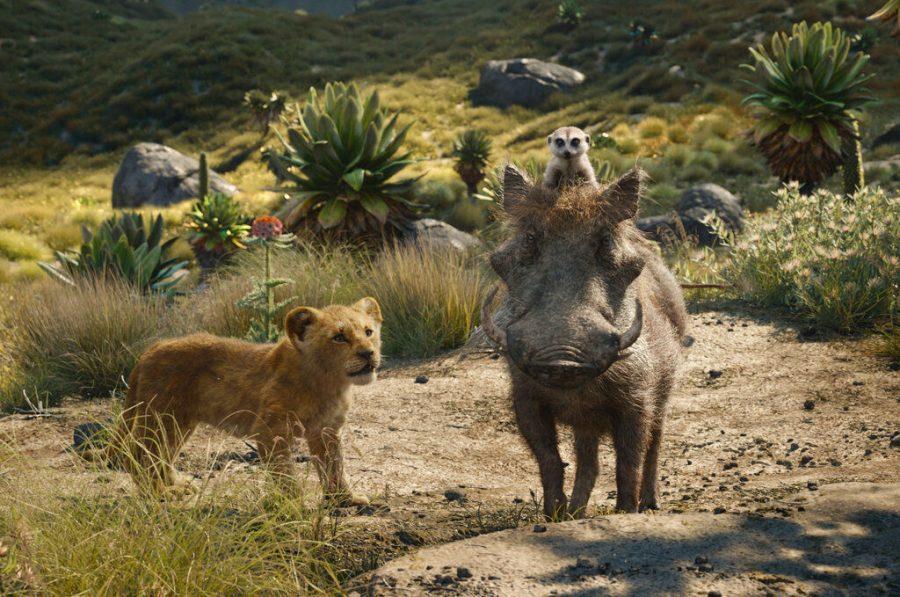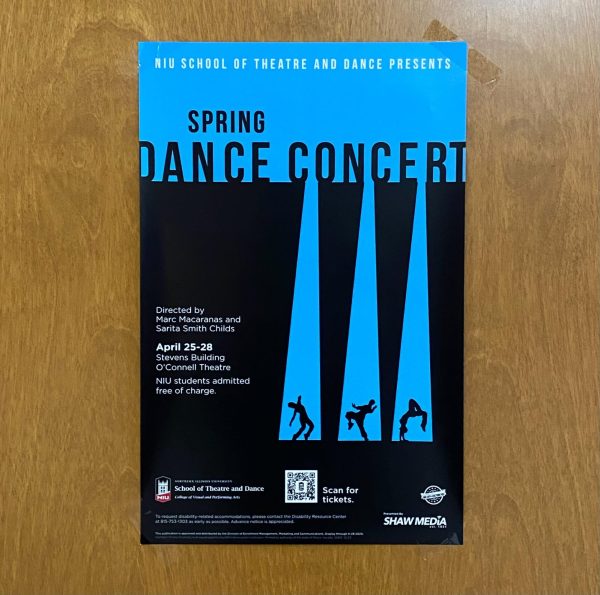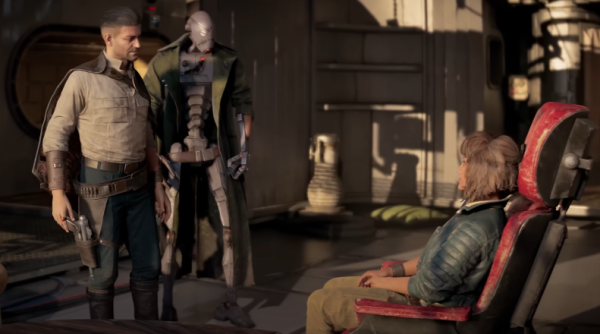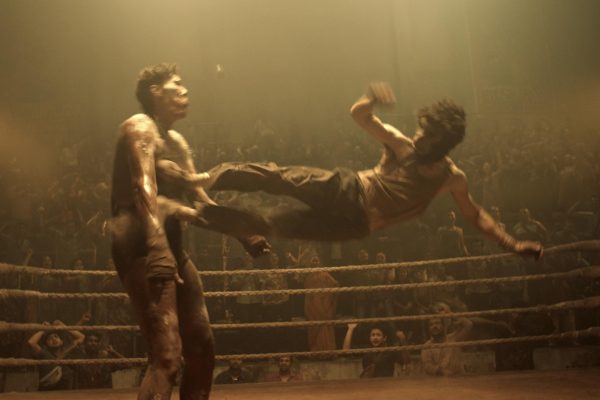‘The Lion King’ lacks the epic nature of the original
(From Left) Young Simba, Timon and Pumbaa, voiced by JD McCrary, Billy Eichner and Seth Rogen, scavenge for grubs across the plains of Africa in “The Lion King.”
July 27, 2019
When remaking a classic film, there should be some changes or updates to improve the story or distinguish the remake from the original. Some films do this well like 2010’s “True Grit” or 2006’s “The Departed” but 2019’s “The Lion King” is so set on replicating the original source material that the film is practically a shot-for-shot remake of the 1994 classic. “The Lion King” lacks all of the originality and dramatic weight of the original leading to a frustrating experience for anyone who enjoys the original film. One would have a better time playing the audio of the original film over a National Geographic documentary on the African savannas.
The film’s story, which was probably the original screenplay but with someone else’s name attached, follows a lion cub named Simba, voiced as a child by JD McCrary, who is the son of King Mufasa, voiced by James Earl Jones, ruler of the Pridelands of Africa. When Simba’s father is killed by Mufasa’s brother Scar, voiced by Chiwetel Ejiofer, Simba runs away and lives a life in exile until he becomes an adult, voiced by Donald Glover, and decides to take his rightful place as king.
Jon Favreau’s direction is the best aspect of the film. His shots are masterful and the film’s computer generated imagery is breathtaking. At times, the film makes the viewer feel as though they are in the savannas of Africa. Every animal in the film looks realistic and the visual effects are on par with Favreau’s other Disney film “The Jungle Book.” However, this leads to a major problem for the film: the lack of expression. Because the characters look and move like real animals, there isn’t as much room for expression which leads to a lack of emotional connection between the characters and the audience.
On top of that, the animals, lions in particular, look so similar that it is sometimes hard to tell them apart. When Scar and Simba fight, it is nearly impossible to tell which one is which whereas in the original both characters had a unique color scheme and shapes.
The film also lacks a grand scale and feels watered down. When the monkey Rafiki, voiced by John Kani, displays Simba during “The Circle of Life” opening, it doesn’t feel like an inspiring, important moment. The same can be said for Mufasa’s death, one of the most famous and heartbreaking Disney deaths. When Scar says “Long Live The King” before flinging his brother to the stampede, the sound mixing is so bad that it is hard to hear the line.
A lot of these underwhelming moments can be attributed to the film’s attitude of doing the same thing as the original film in the exact same way it was done. The viewer is most likely going to have seen the original film, so it would make sense to change the way things happened to establish a different identity and create a different cinematic experience.
The casting of “The Lion King” is nearly pitch perfect with Donald Glover and Beyoncé leading the cast as Simba and Nala, Simba’s friend turned love interest. Both are convincing and it is clear both actors have great respect for these roles. James Earl Jones returns to voice Mufasa after playing the same role in 1994’s “The Lion King” and it is clear that his voice, like wine, has only gotten better with time. However, Chiwetel Ejiofer struggles as Scar. Ejiolfer is a fine actor and delivers a somewhat threatening presence. However, his voice cannot compete with Jeremy Irons, who voiced Scar in 1994.
Musically, the film delivers adequate musical numbers but there is a lack of creative imagery because all of the animals are meant to move in a realistic manner. Instead of choreography, the animals just walk or run from point A to point B.
“The Lion King” isn’t the worst of the recent wave of Disney remakes but it is one of the most insulting. This is because Disney gave an exact same copy of the original, but with a lower quality, and expected the viewing public to give them large amounts of money for it. The sad fact is that it worked and the film has already made over 700 million dollars in its first week at the box office.
The film is the equivalent of Diet Coke with far less substance than the original. However, whereas Diet Coke is supposed to be better for you, “The Lion King” is completely inferior in every way to the beloved classic. If one wants to see a different version of this film, the best option is to shell out a bit more money and see the Tony Award winning musical.














